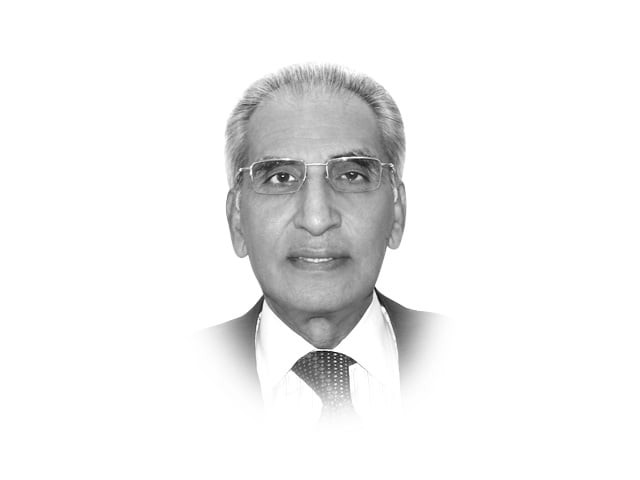Relations on hold?
Pakistan’s relations with the United States are critical to our well-being and the region’s stability.

There is no denying that events during the past year have brought Pak-US relations, which had been extremely close and intimate ever since 9/11, to an unprecedented nadir. A relationship that had led to collaboration in sensitive operations and brought huge sums to Pakistan, (whether any of it served the people’s interest is, of course, another matter), is now marked by suspicions and misgivings. Admittedly, it bestowed legitimacy to an illegitimate ruler, who had no moral compunction in agreeing to agreements with the US that remain unknown to this day. Consequently, claims to the contrary notwithstanding, US-Pakistan ties remained transactional, with US officials not averse to claiming that Pakistan was doing it no favour, for it was being paid for its “services”.
Even when an elected government came to power, there was no inclination on its part to review the onerous burdens embraced by an authoritarian ruler who believed that being described by President Bush as a “buddy” was enough of a compensation for the huge suffering inflicted on the nation. The current government went on basking in the sun of American approbation, publicly criticising the drone attacks, while privately endorsing them.
It was not until the national uproar over the brutal killing of 24 Pakistani soldiers by US/Isaf gunships in November last year, that the government woke up to the realisation that pursuing a duplicitous policy was no longer tenable. If the review, a welcome though belated initiative, leads to the emergence of a new approach towards the US that is more in tune with the core interests of the nation, the lives of these brave soldiers would not have gone in vain. Parliament’s involvement is also a positive development, as it will impart badly needed legitimacy and credibility to our policy. But its formulation must not become a hostage to emotions or sentiments, certainly not in a country whose possession of nuclear weapons causes many a sleepless night, in many a capital. Instead, it must reflect objective recognition of ground realities, within the country and in the region.
Whatever our gripes, Pakistan’s relations with the United States are critical to our well-being and the region’s stability. While there can be no going back to the cosy camaraderie of Musharraf’s era, there are many important issues on which the two countries must learn to cooperate. For one, Pakistan must endeavour to establish a robust economic relationship with the United States, with primary focus on the critical fields of power and energy, as well as on getting greater market access for our products. Second, as the primary source of sophisticated weapons systems, the US remains important to our security. Third, Pakistan needs to abandon ambition that views Afghanistan in terms of ‘strategic depth’, instead seeking a supportive role in promoting peace in that country and to this end, convince both Washington and Kabul that without Pakistan’s active participation, the Taliban leadership will remain unhelpful. Finally, Pakistan has to emphasise that while we recognise that the era of the zero-sum games is over, we have a legitimate interest in the trajectory of US-India relations. At the very least, Washington must be sensitised to the fact that the strategic nature of US-India ties must not add to Pakistan’s worries.
A less ambitious, low-key approach by both Islamabad and Washington may not sound as attractive as the earlier bonhomie between them, but a lowered horizon of expectation, based on ground realities, would be a more achievable goal and in consonance with popular wishes.
Published in The Express Tribune, January 25th, 2012.















COMMENTS
Comments are moderated and generally will be posted if they are on-topic and not abusive.
For more information, please see our Comments FAQ